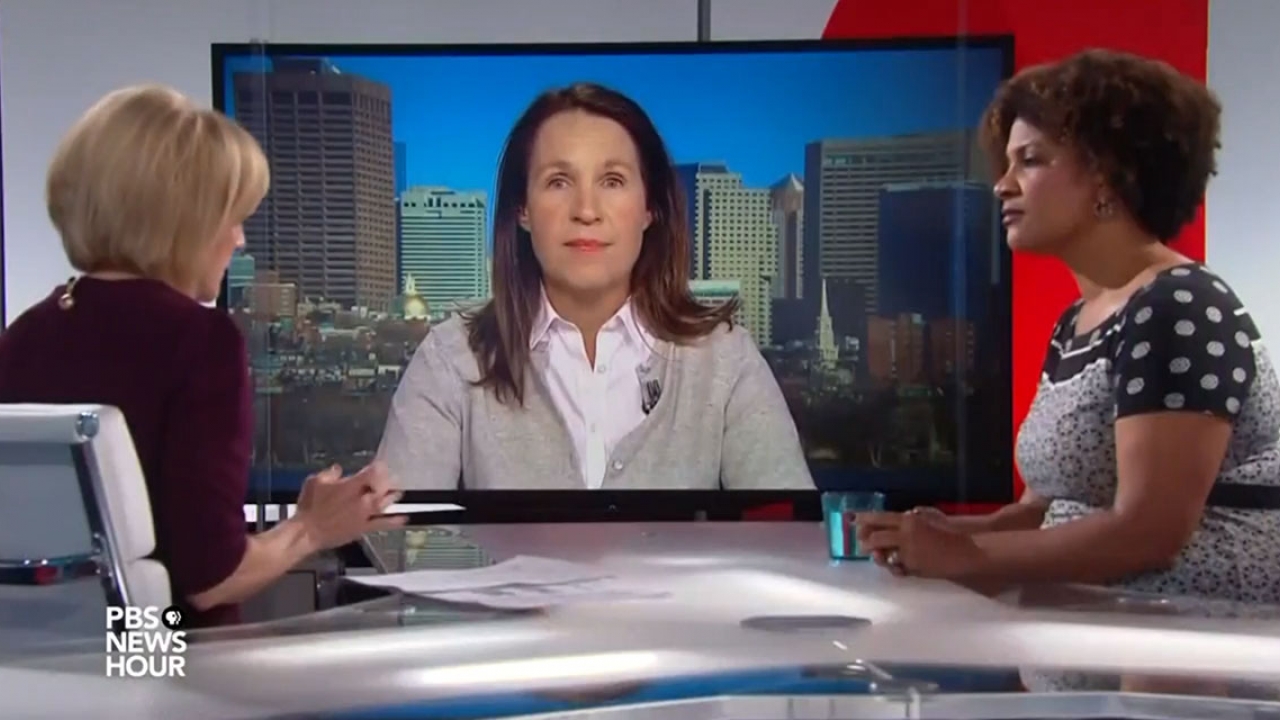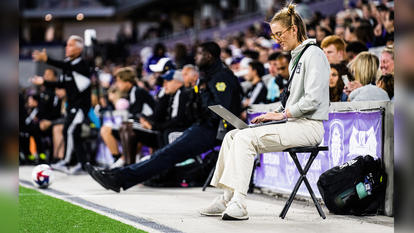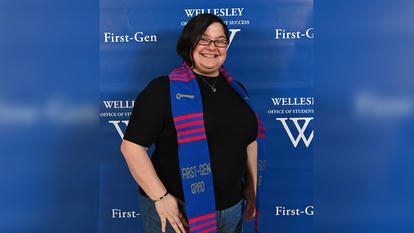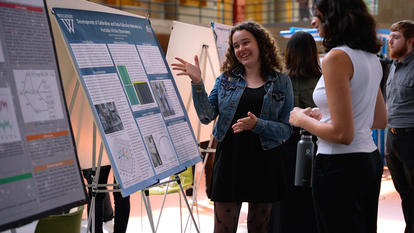Wellesley Professor Leigh Gilmore Speaks with PBS, Other Media Outlets, on Sexual Harassment and the #MeToo Campaign

The recent revelations about Hollywood mogul Harvey Weinstein have sparked a resurgence in the #MeToo campaign and inspired millions of women to share stories of sexual harassment and assault. Wellesley's Distinguished Visiting Professor in Women's and Gender Studies Leigh Gilmore, the author of Tainted Witness: Why We Doubt What Women Say About Their Lives, has been tapped for her expertise on the topic by a number of media outlets.
On the PBS NewsHour, anchor Judy Woodruff explored what’s driving the movement with several guests, Gilmore among them. The hashtag was first used in 2007, but when actress Alyssa Milano tweeted it recently to revive discussion about sexual harassment and assault in the wake of numerous allegations against Weinstein, it went viral: It was retweeted nearly one million times in just 48 hours. Facebook reported that 45 percent of its users have friends who posted to #MeToo, as women shared their experiences and their opinions about what should change.
Woodruff asked Gilmore why women are not always believed or taken seriously when they bring up sexual harassment and assault, and whether we might be at a moment where that can change.
Gilmore replied, “We have a persistent and a pervasive culture of doubting what women say, especially when they’re bringing forward accounts of harm into the public sphere. We have these premade default cultural narratives of women’s unreliability. We have he said/she said, which is a false equivalence narrative. We have that notion that nobody knows what really happened...that you can’t really trust what women say. None of these are based in fact, but they are part of a kind of cloud that enables us to doubt any woman before she speaks up. And it’s quite intimidating. We really are at a moment where I think we have a new level of visibility, and we have the opportunity to amplify the voices of women who are speaking out. Insofar as we have that opportunity, there is a form of solidarity, and more women speaking can lead to change.”
Gilmore has also been interviewed by Bustle, Fortune, NPR, WBUR, and the Cape Cod Times over the past few weeks. She told Bustle that anyone can be supportive of the campaign by simply listening and supporting those who joined in. “It’s important to remember that anyone can participate by being a witness to this testimony,” she said. “To hearing the stories as they come out. To keeping the space open for us to learn about the toxic masculinity and rape culture that harms all of us.”
Speaking with NPR, Gilmore said that despite all the attention being brought to the issue of sexual abuse, it’s still not enough. “This is about refuting a toxic culture of violence that’s larger than any particular male predator like Harvey Weinstein," she said, "and I hope we don’t miss our chance to really make some kind of transformation in daily life about sexual abuse and sexual harassment by simply scapegoating one powerful man.”
She also told PBS, “As wonderful as it is to have increased visibility, and it enables us to connect the dots and to see the long histories of sexual abuse, harassment, and discrimination, we need new levels of accountability. I will echo the notion that Harvey Weinstein’s board certainly knew about these accusations. There’s a DA who failed to charge him. We have ample examples of failures. And what we really need to do is to correct those. The role of men is certainly important here. Minimally, they can show up and be witnesses.”



